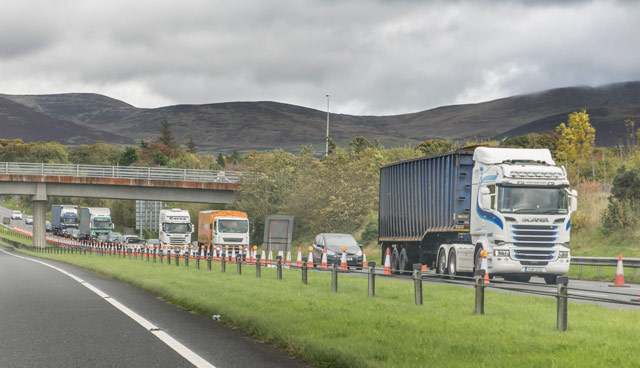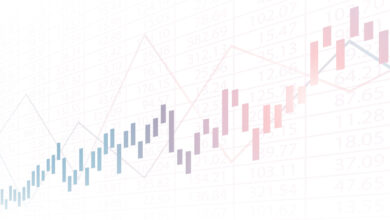Broad Economy Sales and Export Statistics

As the Northern Ireland Statistics and Research Agency releases the Northern Ireland’s Broad Economy Sales and Exports Statistics for Goods and Services in 2016, agendaNi reviews those results in the context of Brexit and the uncertainty surrounding cross-border Irish trade.
The Broad Economy Sales & Export Statistics recorded across the year demonstrate a notable increase across all definitions of imports and exports, with imports estimated to be worth £6.8 billion in 2016 and exports valued at £8.3 billion. With these figures, Northern Ireland saw an 11.2 per cent rise in imported goods of over £0.7 billion. The region also saw a 7.3 per cent increase in exports over the course of 2016, with exports estimated to be worth £10.1 billion.
Figures released in the Broad Economy Sales and Export Statistics can provide key insights into the health of an economy and its rate of growth. Whilst demonstrable increases can be observed in Northern Ireland’s trade with the Republic of Ireland, the United Kingdom and the Rest of World, such statistics must be interpreted in a pre-Brexit context. Furthermore, a limit on available information surrounding the frequency with which goods are moved across the border and the purposes for which they are used beckons further research if we are to come to a greater understanding of the nature and value of trade between Northern Ireland and the Republic of Ireland.
Total purchases by companies based in Northern Ireland had an estimated worth of £44.3 billion in 2016 – an increase of 1.9 per cent (or £0.8 billion) compared to the previous year. A close examination of Northern Ireland’s purchasing of both goods and services provides some insight into the region’s dependence on trade, with goods purchases estimated at a value of £35.2 billion — a 3 per cent increase on the previous year. Similarly, purchases of services were estimated at a value of £9.1 billion, accounting for 20.5 per cent of total purchases in Northern Ireland. Purchases of services saw a 3 per cent decrease across 2016, in what represents one of the only decline in figures published in the report.
The information published in the report can give a strong impression of the importance of cross-border trade to the Northern Irish economy. Indeed, sales of services were estimated to be worth £19.5 billion, accounting for 28.3 per cent of total sales in the region in 2016. Exports to markets outside of Northern Ireland increased by a substantial £1 billion to a total of £24.1 billion, with external sales of goods by Northern Ireland companies accounting for 78 per cent of external sales. Similarly, the external sales of services were estimated as representing 22 per cent of all external sales in 2016. These statistics suggest that Northern Ireland’s ability to export goods and services is integral to its continued economic survival following the UK’s departure from the European Union.
Of equal importance to Northern Ireland’s economic health is the ability to import goods and services from the Republic of Ireland, the Rest of EU and the Rest of World. This is supported by the calculations seen in 2016’s Broad Economy Sales and Export Statistics, which claim that the region’s importing of services represent 10.3 per cent of total imports and the importing of goods representing 89.7 per cent of total imports at an estimated value of £6.1 billion — an 11 per cent increase on the previous year. A close examination of import statistics provides a key insight into the importance of international trade to the economy of Northern Ireland. Whilst imports from the Republic of Ireland were estimated to be worth £2.3 billion in 2016, imports from the Rest of EU were estimated at £2.1 billion and imports from the Rest of World were valued at £2.4 billion. Whilst the publication provides no real suggestion as to the impact of Brexit on Northern Ireland’s ability to import and export goods and services internationally, figures suggest that unhindered access is central to the survival of Northern Ireland’s supply chain economy.
As the British Government approaches a conclusion in negotiations with the European Union, Northern Ireland will likely feel the impact of Brexit soon. It is crucial, therefore, to establish the degree of interdependence between cross-border business in the context of a departure from the European customs union and the single market. In a step towards understanding the nature of such cross-border interdependence, the Department for the Economy commissioned the Northern Ireland Statistics and Research Agency to undertake a survey of NI businesses trading with the Republic of Ireland, as well as an analysis of HMRC microdata with a focus on how goods were being moved across the border and the nature and extent of supply chain linkages. What followed was the Cross-Border Supply Chain Report 2016, which provides greater insight into the nature of border travel and trade across Ireland.
Cross-Border Supply Chain Report
Findings in the Cross-Border Supply Chain Report of 2016 suggest that greater focus most be placed on coming to an understanding of cross-border trade as the region advances towards a departure from the European Union. Estimates in the report suggest that NI VAT and PAYE registered businesses made 758,000 cross-border deliveries to the Republic of Ireland, with an estimated value of £3.42 billion. Similarly, businesses from the Republic of Ireland oversaw 410,000 cross-border deliveries to Northern Ireland, valued at nearly £2 billion. Micro and small businesses dominate Northern Ireland’s economy, with 74 per cent of export deliveries from Northern Ireland businesses coming from those with fewer than 50 employees and 33 per cent carried out by those with less than 10 employees. These were worth more than £4,500 only in 20 per cent of cases, with these low-value deliveries accounting for 82 per cent of the total value of NI exports to the Republic of Ireland.
Notably, research detailed in the Cross-Border Supply Chain Report found that most district council areas along Northern Ireland’s border demonstrate a greater propensity for trade with the Republic of Ireland than areas not adjoining the border. 39 per cent of Northern Ireland trade with the Irish Republic was comprised of trade in intermediate goods, which is highlighted by the report as potential evidence of supply chain activity — including meat and fish products, foodstuffs, dairy products and beverages. Bilateral trade within the same sector highlights the paramount importance of ease-of-access for businesses on either side of the Irish border. The report also found that Northern Ireland was much more likely to trade in capital goods with the Rest of the EU and the Rest of World than with the Irish Republic — providing further evidence of Northern Ireland’s continued integration into international markets.
Whilst statistics and research compiled in the report is detailed, it provides only a partial view of the movement of goods across the Irish border, due to Northern Ireland’s reliance on Irish ports for its trade with the rest of the United Kingdom — supporting the claim that north-south supply chains cannot be considered in isolation from trade with Great Britain. The integration of Northern Ireland into international markets, whilst visible in 2016, may be subject to flux following the Brexit referendum – as will the country’s capacity to import and export goods and services to the Irish Republic, to Great Britain and to the rest of the world. The impact of this decision will be visible in the near future as statistics surrounding current cross-border trade become clear.





